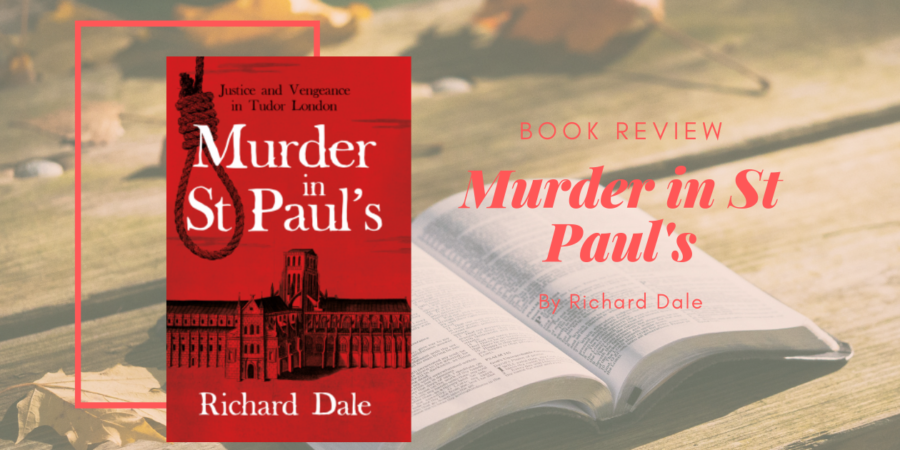Now that I’m back home and have ready access to a library, I rarely accept ebooks for review. The odd NetGalley copy is normally the most I’d do, but when I heard about Murder in St. Paul’s, I was intrigued. Apart from the fact that it’s a historical mystery, which is something I enjoy, the story is set in St. Paul’s Cathedral, which is a place that I’ve actually visited.
Murder in St. Paul’s is centred around the death of Richard Hunne. Hunne is a Lollard, a man who believes that every Christian should be able to read the Bible (if you’re thinking that this sounds familiar, Lollardism is the precursor to modern Protestantism). When a greedy priest asks for his son’s christening robe in exchange for having performed last rites, Hunne decides to take the Church to court. Sadly, he ends up dead under mysterious circumstances and then posthumously condemned as a heretic.
Anne, Richard’s wife, is also a Lollard. And when she finds out about the death of her husband, she’s determined to find his killers and bring him to justice. The main bulk of the novel involves her trying to move on while looking for Richard’s killers, all the while living out her faith the best she knows how.
I really liked the topic of this novel. I didn’t know much about the Lollards apart from the fact that they followed Wycliffe, so it was pretty interesting to find out more. The book talks about the struggle between the clergy and the royalty, and the clergy and people like Anne pretty well. I finished this book having a better idea of the theological tensions in that time period.
That said, the writing felt a little dry and academic at times. It was somewhere between the style of a novel and the style of a true-crime novel, which made it a little hard to fully immerse myself in 16th Century London. It also felt, at times, a little too convenient – Anne was able to be at key points in Church history even if it took place outside of England – which was another point that made the book less immersive for me.
Gripes about the writing style aside, the topic of the book was good. I don’t think this is a conventional mystery, since it takes Anne years to find out what truly happened and there is no climatic denouncement that mysteries typically have, but it does shed a light into the life of a Lollard in the 16th century and how the clergy were viewed by various members of society.
